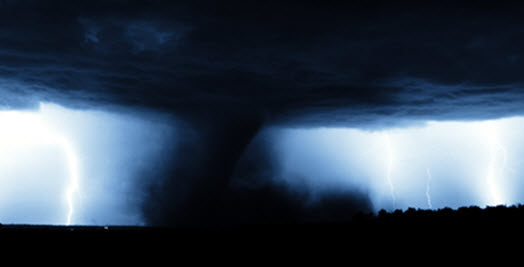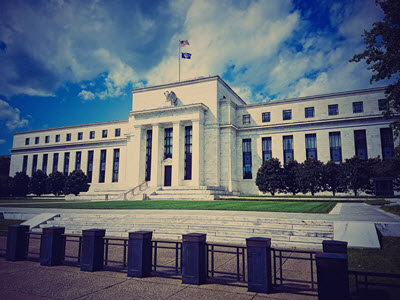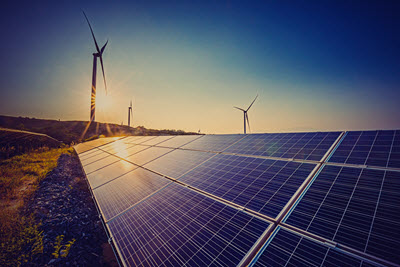Climate Change Impact on Commercial Real Estate Finance — What the Industry Needs to Know Today

The confusion has left decision-makers at banks, debt funds, insurance companies and real estate developers with hard choices – from predicting how climate change could affect real estate prices to deciding how to finance certain property – and what changes, if any, to make to their businesses going forward.
In an effort to bring some non-partisan business clarity to the conversation and prepare interested parties across the industry for what lies ahead, we identify, summarize and analyze the impact of climate change on commercial real estate finance and developments that warrant attention from industry participants. You can also read how climate change is forcing the industry to re-think its reliance on flood insurance.
Davos: Extreme Weather a Serious Economic Threat

Earlier this year, at the forum’s annual conference in Davos, Switzerland, many were surprised when climate change was identified as the number one threat to the world economy. In past years, the themes of this elite gathering held at a luxury ski resort in the Alps focused on more traditional economic issues like trade barriers, globalization and public-private cooperation.
But this year, leaders from the private sector, government and academia concluded that the greatest danger to the health of the global economic system was the increasing frequency and intensity of extreme weather events. Second among the gravest risks to economic growth was a related concern: the failure of public officials to limit the effects of climate change. The annual report published by the World Economic Form ahead of this year’s event described this sentiment: “Of all risks, it is in relation to the environment that the world is most clearly sleepwalking into catastrophe."
New York: The Climate Mobilization Act
The Bank of England: Climate Change Risks and Bank Stress Tests
Federal Reserve: Preparing Financial Institutions for “Severe Weather Events”

Back at home, the Chairman of the Federal Reserve, Jerome Powell, indicated in an April letter to Congress that the Federal Reserve is also working to ensure resilience of the financial system from extreme weather related to climate change.
“Although addressing climate change is a responsibility that Congress has entrusted to other agencies, the Federal Reserve does use its authorities and tools to prepare financial institutions for severe weather events,” he wrote.
The Chairman’s comments came in response to a January 25 letter from Senator Brian Schatz of Hawaii emphasizing the need for the Fed to manage the risks from unexpected weather conditions and to prepare banks to do the same. As Senator Schatz noted in his letter, such climate-change risks include potential loan losses at financial institutions from business interruption caused by storms, wildfires, hurricanes and other acute weather events.
Resilience Programs: Mitigating Losses from Environmental Disasters
Climate Change Funds: Investing in Innovation

Out of the uncertainty on how to handle climate-change risks to the financial system, new investment opportunities have thrived. Several climate-change funds have been established to invest in companies that combat climate change and its effects – including investments in renewable energy sources as well as projects for adaptation to global warming.
In 2018, investment managers had $3 trillion in assets invested with a focus on climate change according to the US SIF: the Forum for Sustainable and Responsible Investment. These funds, however, do not face any less of a challenge than the Fed in determining how climate change threatens the profitability of its portfolio of assets.
Summary

Climate change is real and it is happening today. Public sentiment is growing on both sides of the aisle that the climate crisis is truly that – a crisis – and must be solved by our elected officials and business leaders. Seventy-three percent of registered voters in the U.S. believe climate change is a real problem, an 11% jump since 2013. And perhaps the most compelling evidence is Mother Nature. By turning on The Weather Channel on any given day, we see proof that our environment is changing in ways which are causing increasingly severe damage to property, communities and economies, large and small.
Political screaming matches on cable TV and doomsday threats about the end of humanity are not helpful to people running real estate companies and commercial real estate lending operations. They are not useful components of the commercial judgment rule being used by executives who must answer to boards, shareholders, clients and employees.
But one thing is clear. Like all movements which have altered the course of history, climate change is gaining velocity as a social, moral and economic issue at all levels of society. Causes on this scale sooner or later ultimately lead to government regulation at local, state and federal levels. New laws will be enacted which will require all businesses to spend large sums of capital to adapt. As this article has shown, climate change is already impacting the commercial real estate finance industry, and more impacts are certainly on the way in the not too distant future.



